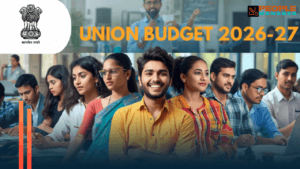Flipkart establishing a state of the art model in Human Resources and DEI
In Laxmi Nagar in New Delhi, the e-commerce giant has a delivery service staffed exclusively by people with disabilities, which is considered a standard for human resources and DEI (diversity, equality and inclusion).

Flipkart establishing a state of the art model in Human Resources and DEI
Most companies generally do not consider the human resources function to be an operational business function. Instead of a service function, the HR function can support organizational growth through workforce strategies and transformation. These are the requirements for the future of work HR, which include diversity, equity, inclusion, and belonging. But Flipkart establishing a state of the art model in Human Resources and DEI
Flipkart, an India-based e-commerce giant, is implementing a state-of-the-art model in HR and DEI.
“Inclusion and belonging are at the heart of our workplace equality,” said Krishna Raghavan, chief people officer at Flipkart.
In Laxmi Nagar in New Delhi, the e-commerce giant has a delivery service staffed exclusively by people with disabilities, which is considered a standard for human resources and DEI (diversity, equality and inclusion).
Seventy people with disabilities are employed at this Laxmi Nagar branch, sixty-five of whom are hearing and speech impaired, while the remaining five are wheelchair bound and have mobility limitations.
The delivery facility is doing a phenomenal job by delivering over 1500 parcels daily in 91 PIN codes in this particular area of Delhi.
Raghavan said, “The ABC of workplace values at Flipkart are boldness, drive and customer centricity. Two new values we have added to our culture are inclusion and integrity.”
Prajakta Kanaglekar, vice president of HR at E-Kart, said, “We recognize the importance of integrating employees with different disabilities into the workforce and leveraging their strengths to create a workplace culture where they feel included and supported, and where they also have the opportunity to thrive.”
The DEI Vision of Flipkart and Initiation
“The establishment of this facility at Laxmi Nagar in New Delhi was a pilot project of Flipkart, which was launched in 2017 with the aim of providing vocational and economic growth to the people with disabilities,” Kanaglekar said.
Kanaglekar said they started and set up this delivery facility where all roles were filled by a special category of employees who handled the entire operation of the facility, including the warehouse manager, who himself has a locomotor disability.
Flipkart currently employs over 2,000 people with disabilities in various supply chain roles, such as packers, sorters, pickers, delivery people, etc., in various facilities and warehouses across India.
“The idea was not only to raise public awareness, but also to create economic growth opportunities for these very special employees, of whom we are very proud,” Kanaglekar said.
Flipkart establishing a state of the art model to Engage PwD Talent?
Most of the employees in the Laxmi Nagar facility were recommended by someone or recommended each other and were hired here.
Flipkart is also in contact with non-governmental organizations, and some hiring has been done through these organizations as well.
“The company has a comprehensive employee referral program that applies to these employees in the persons with disabilities category as well, for various functions in the company, but especially for functions in the supply chain,” Raghavan explains.
Flipkart establishing a state of the art model in Day-to-day functioning
Interpreters are available at the facility for hearing-impaired and speech-impaired employees to facilitate easy and smooth communication using sign language.
However, the software developed by the organization’s IT team has proven to be very useful at this level for the disabled staff.
Flipkart’s core technical team, which manages the entire supply chain, has developed a ‘SOS app‘ that is used by these employees.
If a hearing impaired or speech impaired delivery person has a problem during the delivery process, the app SOS can be used to send a text message or video call to the warehouse manager.
At the same time, a message is automatically sent to the main manager in Bengaluru. In this way, any difficulty is resolved when a message needs to be sent to the customer.
If there is a problem that this agent cannot solve and via the video call to the manager, then someone from the hub reaches the respective location and helps the respective agent and customer with the hurdle.
This problem has been overcome over time as the customers of the respective 91 PIN code locations around Laxmi Nagar have also become well aware and familiar with the fact that specially capable agents and delivery boys are getting their products delivered in that location, and have gradually learned and adapted how to communicate with them, make their payments or resolve any issues while having their product delivered to them.
Agents are given a scooter or battery-powered bicycle to deliver their orders, depending on their age and the distance of the places they need to go.
A few employees who are wheelchair bound are given special scooters and can only deliver their orders on the second floor.
Even otherwise, Flipkart has a proper procedure to help and support both employees and customers in cases of fraud or wrong orders. The problem is solved by email and through Flipkart’s central customer support.
Flipkart establishing a state of the art model in Rewards & Recognitions
All disabled employees at Flipkart, including those at Laxmi Nagar, are primarily contract workers.
Flipkart has a program called ‘Flip Ahead’ through which any contract employee who performs well in his or her current role can apply for a full-time position with the company.
Kanaglekar explained that Flip Ahead is also available to exceptionally capable contract employees from the supply chain, and that they have an equal opportunity to go through this development program, depending on which positions become available in the company, and get a chance to be hired.
“Fairness and performance orientation are practiced throughout our workforce, whether they are full-time or contract employees. We recognize every employee’s hard work, regardless of which cohort they are in, and the same KPIs (key performance indicators) apply to everyone,” Raghavan said.
Raghavan also said the organization believes in creating equitable compliance metrics and an environment where everyone is motivated in the same way and judged on the same KPIs and parameters.
This is also one of the reasons why and how the category of employees with disabilities use this as they see fit to prove that they are no less than regular people and regular employees without disabilities. This leads to them receiving higher incentives.
Flipkart establishing a state of the art model in Learning and development
The company has a comprehensive learning and development system that takes care of all types of employees and their needs.
In addition, there are special awareness sessions and programs for employees who work with different groups of employees or cohorts, such as people with disabilities.
Kanaglekar explains, “For example, there is a program called ‘Aarambh‘ that helps employees learn sign language and interpreting for those who will be working specifically with hearing and speech impaired workers.”
These measures extend to the entire ecosystem of Flipkart’s operations and supply chain, including kiranas and freelance delivery workers.
Flipkart establishing a state of the art model in Employee Experience
Experiences of the disabled employees in the Laxmi Nagar Hub (translated from Hindi and Hindustani)
Sunil Kumar, 35, said he is very satisfied with the income he earns from his work. Previously, he had worked in a hotel where he was paid very little and often had to work late at night or in the early hours of the morning. He enjoys working at this facility in Laxmi Nagar and has few problems.
Khush Mohammed, 25, has a disability in his right hand. He used to work in construction and his colleagues did not treat him well or talk to him properly at his previous workplace, where he also experienced a lot of discrimination.
Here at Flipkart, he finds a very friendly environment and feels a sense of brotherhood among his colleagues who work at the centre.
Vimlesh, 22, has completed 10th grade and has been working at this facility for six months. He is hearing and speech impaired and has his first job here.
He likes it here very much and wants to continue working here because his family is very happy with him as he is able to provide for them financially with his good earnings.
Shekhar Kumar, 35, has a musculoskeletal disability and has been working at this facility for two years, since March 2021. Previously, he worked as a construction worker and was also self-employed as an e-rickshaw driver for a while.
The closure was hard on Shekhar and his family. Since he started working at this facility in Laxmi Nagar, he has been earning well and has even bought a small piece of land on the outskirts of Delhi where he could build his own house.
He says he is very happy with his work and loves the culture and brotherhood he feels among his colleagues.
His message to all disabled people like him is to look for work and work hard instead of begging or asking others for help.
All the staff at the Laxmi Nagar centre agreed that they feel well taken care of and supported in the facility and in working with these 70 or so people.
Each of them felt comfortable and happy working at this place and felt a sense of community and brotherhood among them.
The workplace culture is generally supportive and free of any politics, and all the employees are happy to help each other because they are aware that they are all disabled and only by helping and supporting each other are they able to empower themselves and grow while earning a living.
Conclusion
Flipkart’s case study shows how the e-commerce mammoth defines inclusion differently.
Krishna Raghavan, chief people officer at Flipkart, concluded, “We don’t call it diversity and inclusion, we call it ‘inclusion and diversity.’ If you don’t have inclusion, you can’t have diversity in an organization.
He added, “We believe in representation of all forms of diversity, not just gender.”
Raghavan added, “This one center in Laxmi Nagar in Delhi is just another cohort of our entire diverse employee ecosystem at Flipkart.”
- SHe-Box Portal Pushes Companies to Take Workplace Harassment Complaints Seriously: 2025 Report - February 16, 2026
- India’s Labour Codes Are Redrawing the Hiring Map- Tier III & IV Cities Emerge as the New Growth Engines: Report - February 11, 2026
- Girish Ramadurgam on Talent-Fitment” Problem: How to resolve the skill mismatch - January 19, 2026









